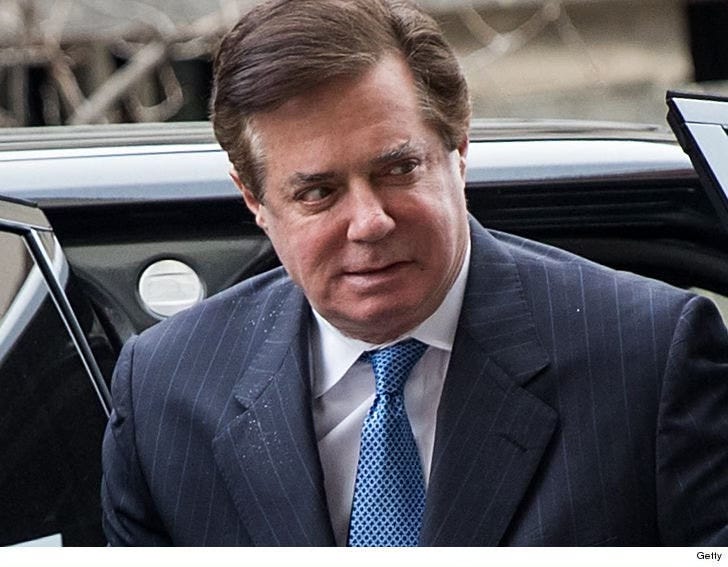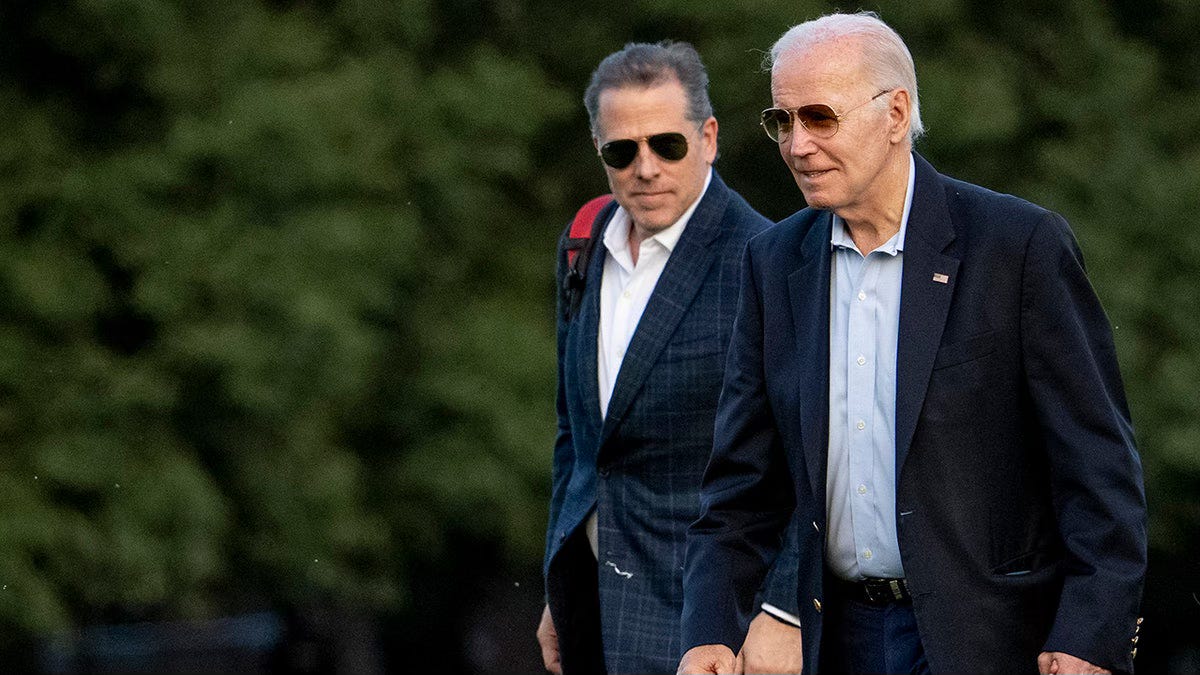How Secret Agents Work to Hijack U.S. Foreign Policy
“Devils’ Advocates,” a new book by New York Times reporter Kenneth Vogel, reveals how foreign potentates recruit connected Americans to promote their interests

The Kashmiri American Council was one of those shadowy pressure groups that pop up in the nation’s capital from time to time. Purporting to be a domestic outfit funded by U.S. donors, it hired Paul Manafort, then one of Washington’s most powerful lobbyists, paying him $700,000 in the 1990s to persuade Congress to back a “resolution” of the dispute over Kashmir that could ultimately allow the region to break off from India and join Pakistan.
In fact, as federal prosecutors later alleged, the council was little more than a “scam” that served as a front for the Inter-Services Intelligence, or ISI, Pakistan’s notorious spy agency. As detailed by prosecutors in a successful, if little-noticed fraud case against the group’s Virginia-based executive director, ISI operatives delivered paper bags stuffed with cash to the council that would then be used to reimburse “straw donors” inside the country, thereby masking the involvement of Pakistan’s intelligence agency in a covert campaign to influence U.S. policy.
Manafort was never charged in the case and asserted he had no idea of the ISI source of his lobbying proceeds—a claim that strained credulity some years later when a former senior Pakistani official told me he had met with Manafort in his office “to review strategy and plans” for the Kashmiri council, including showering key members of Congress with up to $100,000 a year in campaign contributions (courtesy, of course, of the ISI.)
But this was a brand of willful ignorance that Manafort perfected over the years. And his profitable Kashmiri deal stands as a case study of how murky foreign interests press their case in Washington with buckets of cash and a never ending supply of hired gun lobbyists and political fixers—a principal theme of New York Times reporter Kenneth Vogel’s revealing new book, Devils’ Advocates’: The Hidden Story of Rudy Giuliani, Hunter Biden, and the Washington Insiders on the Payrolls of Corrupt Foreign Interests.
Manafort virtually “created this industry,” Vogel said on this week’s SpyTalk podcast. His specialty was “recasting unsavory characters in a way that would make them palatable in Washington [and] making a lot of money off it. And also ignoring the legal requirements” and showing that “the laws we have around this type of stuff are a joke.”
Rogues Gallery
But if Manafort was pioneer in the lucrative foreign influence peddling industry, serving as front man for the likes of corrupt potentates like Mobutu Sese Seko in Zaire and the pro-Putin Victor Yanokovych in Ukraine as well as the ISI, others have followed in his footsteps with gusto, bending the rules of what needs to be disclosed and creating scandals of their own.
Consider the case of Hunter Biden. The travails of the former president’s son have been well documented—his years-long descent into crack addiction and random sexual liaisons. But as Vogel points out, it was not long after then-Vice President Joe Biden was assigned to oversee U.S. policy to Ukraine that his troubled son Hunter was recruited on the shores of Italy’s Lake Como by Mykola Zlochevsky, a Ukrainian oligarch accused of corruption, to serve on the board of his energy company, Burisma Holdings, paying him a princely sum of $1 million a year. The arrangement disturbed State Department officials in Kyiv, one of whom, George P. Kent pleaded with the vice president’s staff to get Hunter to step down to avoid the “conflict of interest.” His request went nowhere—and the elder Biden continued to do what he could to boost his son’s foreign business dealings.
“You do something for me, you’re a friend. You do something for my son, you’re a friend for life,” Biden would say during multiple phone calls in which Hunter would ring his father during meetings with prospective foreign clients and place the call on speakerphone, according to Dennis Archer, one of Hunter Biden’s business partners.
And rather than desist, the younger Biden actively worked the levers of power in Washington — arranging for a Democratic-leaning lobbying firm, Blue Start Strategies, to burnish Burisma’s image and get U.S officials to back off their demands that the company be prosecuted. Yet like Manafort, when he was fronting for the ISI, Hunter Biden never registered as an agent of Burisma under the Foreign Agents Registration Act, the loosely enforced 1938 law that requires anybody representing the interests of foreign principals in the U.S. to register with the Justice Department and file regular public reports on what monies they had received and what they had done for it.
(When Vogel first reported on Hunter Biden’s Burisma dealings, White House spinmeisters went into overdrive trying to discredit him, accusing him in a letter to his editor of “an egregious act of journalistic malpractice” and then leaking the letter to CNN.)

But Hunter’s foreign adventures went well beyond Burisma and proved even more financially rewarding. At the same time, he was promoting the interests of the shady Ukrainian energy firm he was recruited by CEFC China Energy— a Chinese conglomerate with close ties to the Chinese government and a key player in Chinese president Xi Jinping’s Belt and Road initiative. It was a classic Chinese influence operation. CEFC paid nearly $5 million into an investment vehicle headed by Hunter Biden, of which $1.4 million was transferred into the consulting firm of James Biden, the former president’s brother and Hunter’s uncle, purportedly for joint energy projects. A top CEFC official, Patrick Ho, paid an additional $1 million retainer to Hunter when he learned he was being investigated by U.S. prosecutors for paying bribes to African officials to advance Chinese government backed projects. (Ho was later convicted and, despite the hefty retainer, Hunter Biden played no role in his defense.)
“The exact same fact pattern” that led to Ho’s conviction for his under the table payments to African officials “was playing out between the CEFC, this Chinese government-linked fund, and the Bidens,” Vogel told SpyTalk. “That’s what they were doing with the Bidens. They were throwing money at the Bidens for these vague ideas about potentially collaborating on joint ventures that would do infrastructure projects around the world.”
Masters of Deceit
Yet, aside from swelling the bank accounts of Hunter and James Biden, nothing ever came of these projects. And the Chinese payments to the Biden family went undisclosed until years later, when Senate Republican investigators got on the case and began subpoenaing documents.
Ironically, as Vogel readily admits, much of the sleaze surrounding the foreign influence peddling involving the Bidens, Manafort or Rudy Giuliani (who pursued his own payoffs in Ukraine and elsewhere) pales in comparison to the brazen and even more lucrative overseas arrangements of the Trump family–much of which are entirely out in the open. “I’ll have Eric call you,” Trump said on a hot mic to the president of Indonesia, Prabowo Subianto, during this month’s Gaza summit in Egypt. It was later revealed that the Trump Organization, which Eric Trump heads and his father retains his interests in, has two large projects in Indonesia.
Then, this week, Trump pardoned Chenpeng Zhao, the Chinese billionaire founder of the cryptocurrency exchange Binance, wiping out his 2023 conviction on money-laundering charges. Reporters didn’t have to dig hard to figure out why. While hiring a small army of lobbyists to push for the pardon, Zhao also engineered a business partnership with World Liberty Financial, the crypto firm founded by the families of Trump and Steve Witkoff, potentially netting them both tens of millions in profits.
“Trump is much more involved than Biden was in any of Hunter’s business,” Vogel said on the SpyTalk podcast. “But he’s actually also doing things that are completely within his unilateral power to benefit the business partners in a way that I don’t think we’ve seen. I can’t really think of a parallel example in my memory of that level of brazen transactionalism out of the very seat of U.S. power.”




